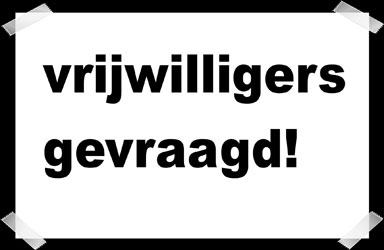Informeel verslag over de Satellite Conference – Viruses in CFS, 22-23 juni te Baltimore, USA, met specifiek meer over de resultaten van de dubbelblinde studie naar Valcyte door Montoya.
Montoya in Baltimore, 22 June 2008
Dr. Jose Montoya gave early results for the Roche Valcyte/CFS trial today, in Baltimore, Sunday June 22, 2008. The timing of the conference was not prefect for the presentations of these results, as Dr. Montoya did not have all his data complete. In a twenty-minute presentation Dr. Montoya went to great care to cite a long list of others who were helpful in this work. He described his and his colleague’s work as a small part of a larger mosaic. He said that his results presented today were not the entire story and that a final presentation would be forthcoming. Dr. Montoya made special reference to the work of Dr. Lerner, who he cited as a pioneer in antiviral work with CFS. After the presentation, in the question period, Dr. Lerner congratulated Dr. Montoya on his work and on the results.
The trial had 30 patients, 20 taking Valcyte and 10 taking a placebo. Valgancyclovir treatment “was well tolerated overall and did not result in clinically significant declines in neutrophil or platelet counts”.
Dr. Montoya explained that there were several objectives to the trial. The first was: Was the benefit real?
Among the 19 Valcyte patients (one dropped out for non-Valcyte reasons), a statistical significant improvement was reached in cognitive function after nine months (six months on the drug and three months follow up). On the improvement of fatigue the results were more elliptical. “At three months after discontinuation of treatment (month 9), while the overall MFI-20 (fatigue measurement) general fatigue score did not reach significance, an improvement rate of greater than 10% in the MFI-20 general fatigue subscore was found in a significantly higher proportion of patients in the Valgancyclovir group that in the placebo group.”
The second objective of the trial was to secure biological markers for future treatment. “Test results of assays for different biomarkers are being finalized and analysis is currently underway.”
“Valgancyclovir treatment was not discontinued due to hematologic or hepatic adverse events.”
The conclusion was that with CFS and elevated HHV6 and EBV antibodies, Valgancyclovir therapy results in significantly improved cognitive and physical functioning and appears to be independent of a placebo effect.
The general sense was that this was an important report, although one could sense that there were detractors, or non-believers, present also.
The trial seemed to indicate that the drug is safe when used with CFS patients under the prescribed conditions, that it brings statistical betterment to cognitive function, that physical betterment is less clear under the current conditions of measurement (except when interpreted in subscore manner) and that future identification biomarkers for treatment will be presented later.
CFS Viral conference, Baltimore June 23
Dr. Jose Montoya gave a follow up talk today in Baltimore. The talk was on the relation between elevated antibodies to EBV and HHV6 and the response to Valcyte. The review was performed on 56 Stanford CFS patients between 2004 and 2007. Each patient was either a responder or a non-responder (or a “patient of undetermined response”). Twenty-four patients were responders, and 18 were non-responders (11 were in the third category). Responders reported at least a 30% increase in activity, confirmed by clinical assessment. 18 of the 24 responders had high antibodies to both viruses. Only five of the non-responders had these high antibodies. The conclusion was that patient with elevated antibodies to EBV and HHV6 appear to be more likely to respond to Valcyte treatment. The median increase for responders, self-rated activity, was 63%.
Today’s conference had a series of fascinating talks by Kerr, deMeirleir, Chia, Peterson, Vernon, Klimas, and Evengard – among others. These presenters are a small band of determined individuals, dedicated to unlocking a very complicated puzzle. Several press releases have been issued and are available online.
Some physicians, including Klimas, are still not inclined to use Valcyte, citing the need for large-scale safety and efficacy trials. There was an excitement in the air in regards to new treatment modalities and studies, including gene expression.
At the end there was an informal exchange of treatment ideas between various practitioners, which was of particular interest.
The real question is if there is enough evidence coming out of this trial to encourage Roche to feel confident to stage another, larger trial. Money is the issue. Time will tell.





